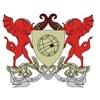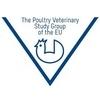Explore all the information on
Viral diseases in poultry
If you ask poultry producers what damage viruses can do to their business, they will understandably think mostly about major diseases such as avian influenza, Gumboro disease or respiratory infections such as Infectious Bronchitis virus. However, this is merely the tip of the iceberg. Viral challenges can be the triggers for a whole range of problems which may never even appear as clinical disease but can have an even more devastating effect on overall flock performance, production and profits. They can affect one or more of the birds’ body systems, the most significant of which are the respiratory tract (lungs and air sacs), the skeletal system (bones and joints) or the intestinal tract (affecting gut function). Although other factors such as environment, nutrition and management play an important role in the full expression of diseases affecting these systems, the most significant underlying trigger is usually an infectious agent, and the most potent of these are undoubtedly viruses.
Eduardo Lucio, General Director of IASA, talks about the development of vaccines for full protection against Newcastle Disease in Poultry Industry....
Comments : 3
Recommendations: 0
Newcastle disease (ND) is a highly contagious viral disease affecting wild and domestic avian species. It is a worldwide problem that presents primarily as a respiratory disease, but depression, nervous manifestations, or diarrhea may be the predominant clinical form. Mortality is variable. Occurrence of a virulent form of the disease is reportable and may result in trade restrictions. Also known as Exotic Newcastle Disease, Pseudo-Fowl Pest,...
Comments : 5
Recommendations: 0
The Poultry CRC continues to attract exemplary PhD candidates. One of our latest recruits, veterinarian Dr Jemma Bergfeld (based at CSIRO’s Australian Animal Health Laboratory [AAHL]) is set to unravel the mechanisms underlying Newcastle Disease (ND). Caused by virulent strains of avian paramyxovirus type 1 (APMV1), this devastating and...
Comments : 1
Recommendations: 1
Introduction Infectious bursal disease, also known as Gumboro disease, has caused great economic losses in the poultry industry in different parts of the world due to mortality and immunosuppression. It is a contagious acute viral disease of young birds. The disease may be clinical with variable mortality, and subclinical without mortality. The clinical form of the disease occurs in birds from the third week of age and...
Comments : 9
Recommendations: 0
.jpg&w=3840&q=75)

Effects of superdoses of phytase on peaking Hy-Line W-36 laying hen egg production and egg quality
Suggested link
Dear all salam I'm veternarian from Iraq and work as assistant lecturer in agriculture college work on vaccination programm against IBD and IB diseases i need any new researchs about this topic if any one can help me with my regards. ...
Comments : 5
Recommendations: 0
Infectious bursal disease (IBD) is an acute and highly contagious viral infection of immature chickens. IBD is characterized by destruction of lymphocytes in the bursa of Fabricius (BF) and to a lesser extent in other lymphoid organs. The disease is a major problem in concentrated poultry production areas throughout the world. However, it is often not recognized due to a subclinical form. Affected chickens have reduced antibody response to vaccinations, strong...
Comments : 1
Recommendations: 0


Veterinary APIs and feed additives. Hangzhou de Mark at IPPE
Suggested link
Gumboro disease is one of the major diseases of chickens and is present in most of the chicken producing countries. Infection can seldom be avoided, mostly due to the high resistance of its causative agent in the environment, and vaccination is the only way to prevent the possibly heavy corresponding negative consequences. This video summarizes the key points to consider for the establishment of a sound vaccination program, including presentation of the types of vaccines and vaccination...
Comments : 5
Recommendations: 0
From Ghislaine Roch (Canada) presentation at Lallemand’s International Selenium yeast seminar (Grenaa, Denmark, 2007) Ghislaine Roch, independent feed nutritionist in Canada, has been working on antioxidants in animal production for over ten years. In Grenaa’s seminar, she stressed the importance of antioxidants in poultry management, explaining how modern animal production practices, associated with stress factors and intense metabolism, cause an increase in free...
Comments : 1
Recommendations: 0


Recent publications demonstrate arginine sparing potential of guanidinoacetic acid
Suggested link
MBA (management by being around) And as far as N.D is concerned these both become much more important. MBA includes 1): proper knowledge of condition 2): proper analysis of condition 3):proper decision 4):proper execusion of that decision 5):proper result gatheriing and analysis of result 6):flexible enough to change the decisions when don,t get the expected results. Lacking any one of the above...
Comments : 12
Recommendations: 0
The avian infectious bronchitis is an acute, rapidly spreading, viral disease of chickens characterized by respiratory signs, decreased egg production, and poor egg quality....
Comments : 0
Recommendations: 0
Marek’s disease (MD) remains a topic of concern, although the current situation indicates an absence of MD problems in most countries. If outbreaks occur it is important that a correct diagnosis is made. Immunohistochemistry using antibodies to the MD oncoprotein meq, avian leukosis virus and reticuloendotheliosis virus-specific proteins may be required in problem cases. ...
Comments : 0
Recommendations: 0


3 Steps to achieve excellence in quality of herbal feed supplements
Suggested link
Dear friends, Viewing your reports regarding the occurrence of IBD, Mycoplasma, Marek's disease, IBH, ND and other important factors for poultry industry I would like to recommend the new and simple loop-mediated isothermal amplification method for the rapid and simple detection of many poultry pathogens. I successfully applied this tool for diagnosis of Marek's disease and differentiation between different strains used in prophylaxis of...
Comments : 12
Recommendations: 0
New research from the University of Georgia indicates that multivalent vaccination can hinder immunity against infectious laryngotracheitis.
Producers should reduce the number and diversity of live-virus vaccines given in the field when also vaccinating for infectious laryngotracheitis (ILT), investigators from the University of Georgia advise.
In their study,...
Comments : 4
Recommendations: 0
Summary. The presented study was done on 29 MDV strains isolated from field cases of Marek´s disease in Poland. Molecular analysis performed on these strains by PCR and sequencing of meq oncogene has shown 68 bp insertion. This genetic change resulted in frame shift within 10 recently isolated field strains. These strains were tested by PCR for the detection of long-terminal repeat (LTR) region of reticuloendotheliosis virus (REV). The...
Comments : 0
Recommendations: 0
Introduction
The ILT disease was officially reported in Peru in August 2008, after the emergence of several outbreaks which began in the second quarter of that year and was characterized by a high morbidity and mortality. The disease was reported for the first time in poultry farms in the Department of Lima. Later on, the disease was described in other areas, including the departments of Arequipa,...
Comments : 1
Recommendations: 0
Introduction
Vectorized vaccines against Infectious Laryngotracheitis (ILT) are the product of genetic engineering, been developed by ion of genes from the LT virus in a viral vector, which in this case is the avian smallpox virus. The objective for the development of a vaccine with these features was, among others, to achieve a sufficient level immunity so that vaccinated poultry were able to...
Comments : 0
Recommendations: 0
Introduction Infectious bursal disease is an acute, highly contagious disease of young chickens, resulting in immunosuppression and mortality (Toro et al ., 2009; van den Berg et al ., 2000; Di Fabio et al ., 1999). The viral genome codifies for 5 proteins. Viral protein 2 (VP2) is the main structural protein of the capsid, where the neutralizing epitopes...
Comments : 0
Recommendations: 0
Introduction
Infectious bronchitis, diagnosed for the first time in 1932, continues causing severe losses in poultry farming around the world, despite the existence of vaccines from the 1950s. Many of the problems of partial protection conferred by the vaccines in use have been attributed to the great variability of immune profiles of the bronchitis virus. (Niester et al ., 1986)
...
Comments : 0
Recommendations: 0
Introduction During the last decades, infectious bronchitis in hens, (BIG), has caused enormous economic losses in the poultry industry. Its main prophylactic measure is based in the use of attenuated live vaccines, combined or not, with inactivated vaccines (Cavanagh & Naqi, 1997). In general terms, vaccination of flocks against the virus of infectious bronchitis in hens (VBIG) is performed at day one, after birth,...
Comments : 0
Recommendations: 0












.jpg&w=3840&q=75)



.jpg&w=3840&q=75)













